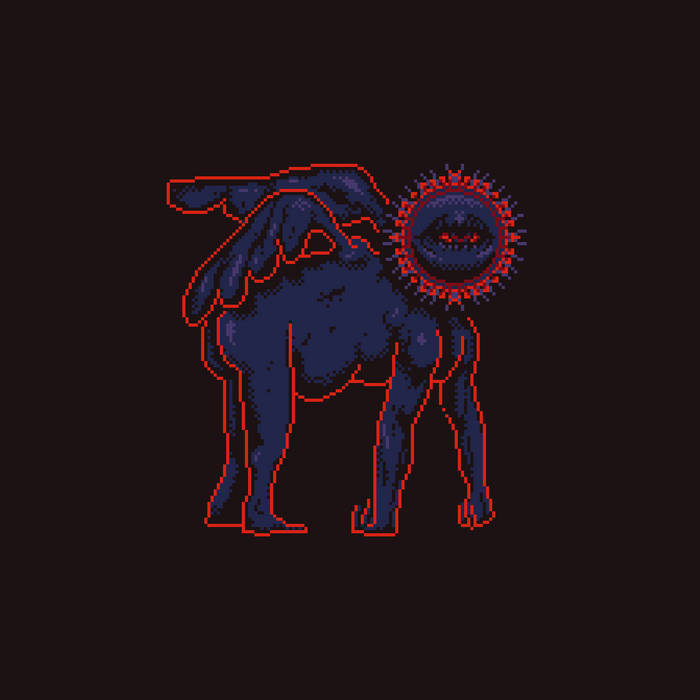SANAM couldn’t choose a better opener for their new album than the majestic and multilayered ‘Harik’. It best encapsulates what the Beirut-based group can do. ‘Harik’ (“Fire” in Arabic) is woven from disparate sound worlds – spanning contemporary Arabic music, free psych rock, and Western post-rock tropes, calling to mind the likes of Egypt-based group The Dwarfs of East Agouza. This music opens ruptures in time and space.
There is a sense of urgency right from the start. It’s announced by the pounding drums of Pascal Semerdjian and the gasping, almost choking vocals of Sandy Chamoun. It then enters a riff of processed guitar by Anthony Sahyoun, whose metallic sound is reminiscent of Slint, only to be guided by Farah Kaddour’s buzuq twangs and layered by Marwan Tohme’s warped electronics paired with Antonio Hajj’s basslines.
Chamoun wrote the song’s lyrics as a reaction from the city of Beirut to the ongoing genocide in Gaza, caught in the geopolitical turmoil and targeted by air raids. Even when you don’t understand the lyrics, anger, melancholy, and resilience in Chamoun’s voice, the way it navigates the emotional spectrum conjures universal expressions of sentience. That opening track is followed by a pair of mournful ballads: ‘Goblin’, led by Chamoun’s nocturnal recital, and the psychedelic slow’burner ‘Habibon’, festooned with elegantly auto-tuned vocals.
While SANAM’s 2023 debut album Aykathani Malakon was permeated by light, Sametou Sawtan bears darker overtones. All the members of the post-rock sextet have formed part of the backbone of Beirut’s underground scenes, playing in bands like shoegaze trio Postcards or post-rock outfit Kinematik, but they’d never play together until 2021. They were brought together by Beirut’s long-running International Festival for Experimental Music, Irtijal, for a performance led by Faust’s Hans-Joachim Irmler. SANAM’s debut followed soon after, stemming from improvisational sessions and recorded live. In contrast, the group’s sophomore album stretches and pushes further out, even though it’s more neatly composed and paced.
The politics in SANAM aren’t as explicit as on Chamoun’s solo electronic albums, which, in a way, documented the Lebanese October revolution in 2019. Except for two of Chamoun’s original lyrics on the new record, in their songs, SANAM rather adapt Arabic poetry from across centuries to offer a new look at what’s happening in their society. They prefer to stay on the level of symbolism, as in the noise-rock of ‘Hamam’, based on an Egyptian traditional folk song about migration of birds. It’s here that SANAM unleash the communal force to overwhelm listeners in a similar vein to Silver Mt. Zion Memorial Orchestra, while the thickness of the synthlines can recall older stuff from the likes of Algiers. Due to economic instability and the exhausting war conflict, people have been fleeing Lebanon in large numbers over the past few years. Naturally, if not unconsciously, themes of migration, instability, and dislocation inform Sametou Sawtan.
The new record, produced by Jerusalem in My Heart’s Radwan Ghazi Moumnek, fits the family of Constellation Records well. It lands next to the Dwarfs of East Agouza or other Sam Shalabi projects, like Land of Kush, with which they share moods and techniques. SANAM explores the horizons of post-rock beyond the Western world. In the most original sense, it’s the music of possibilities and ruptures. Sametou Sawtan sees them full blown.


